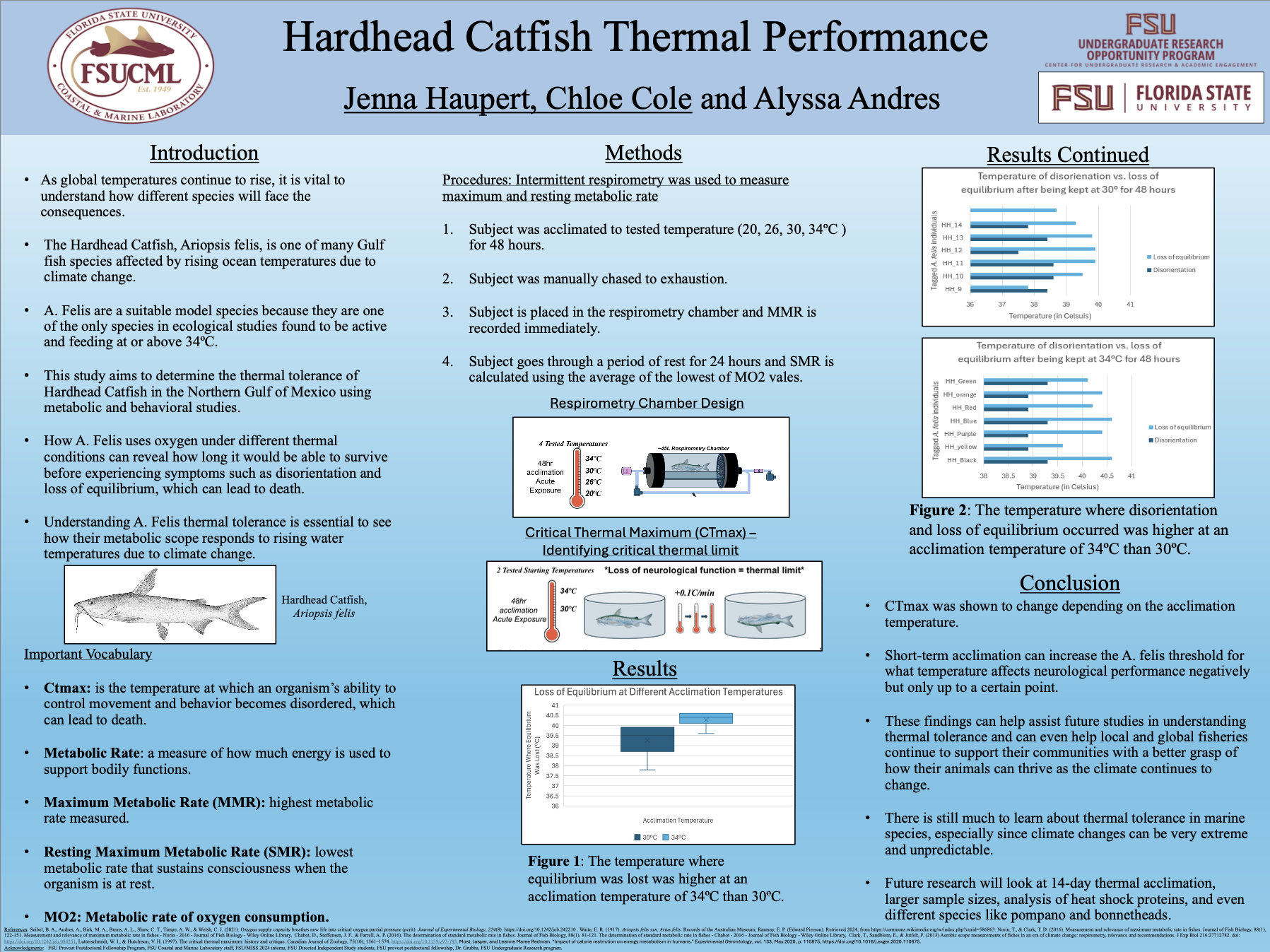Research Symposium
25th annual Undergraduate Research Symposium, April 1, 2025
Jenna Haupert Poster Session 1: 9:30 am - 10:30 am/ Poster #154
BIO
Hi, my name is Jenna Haupert. I am a second-year Behavioral Neuroscience and Business Management dual major from Parkland, Florida. I am on the premedical track with the goal of owning my medical practice one day. I am currently conducting research at FSU’s Coastal and Marine Laboratory under the mentorship of Dr. Alyssa Andres, studying the thermal tolerance of different fish species through metabolic and behavioral analysis. Additionally, I serve as a Crew Leader for FSU’s Medical Response Unit, where I volunteer as an EMT, gaining hands-on emergency medical experience. I am also a member of FSU’s Honors Program and Student Association.
Hardhead Catfish Thermal Performance
Authors: Jenna Haupert, Dr. Alyssa AndresStudent Major: Behavioral Neuroscience and Management
Mentor: Dr. Alyssa Andres
Mentor's Department: FSU Coastal and Marine Laboratory Mentor's College: College of Arts and Sciences Co-Presenters: Chloe Cole
Abstract
The Hardhead Catfish (A. felis) is one of many Gulf Coast fish species that is subject to rising ocean temperatures as a result of climate change. Ariopsis felis is a bony fish species that is known to occupy habitats such as estuaries and other coastal regions. The Hardhead Catfish is known to demonstrate significant thermal tolerance in ecological surveys. One way to learn more about their thermal tolerance is to observe and quantify thermal tolerance and sensitivity. Subjects were exposed to two distinct thermal challenges; exhaustive exercise and CTmax (critical thermal maximum) trials across a range of acclimation temperatures (20, 26, 30, 34 °C). Using respirometry to determine oxygen consumption from resting to maximum energy, we were able to calculate aerobic energetic scope (AS) and how this measure of energy budget changes. Additionally, behavioral observations like disorientation and loss of equilibrium occur under increasing temperature allowing us to determine a critical limiting upper temperature where survival is compromised. All metabolic rates in A. felis increase with temperature at different rates, owing to different temperature sensitivity across activity and lead to changes in aerobic scope with increased temperature. Further, through our experimental observations we found that while the Hardhead Catfish may be tolerant of high temperatures, rising average temperatures and the increasing presence of marine heatwaves will likely alter population energy budgets, that may influence movement, viable habitat, and habitat use. This research can be used to add predictability to species and ecosystem dynamics models in an era of climate change.
Keywords: Fish, temperature, physiology,

